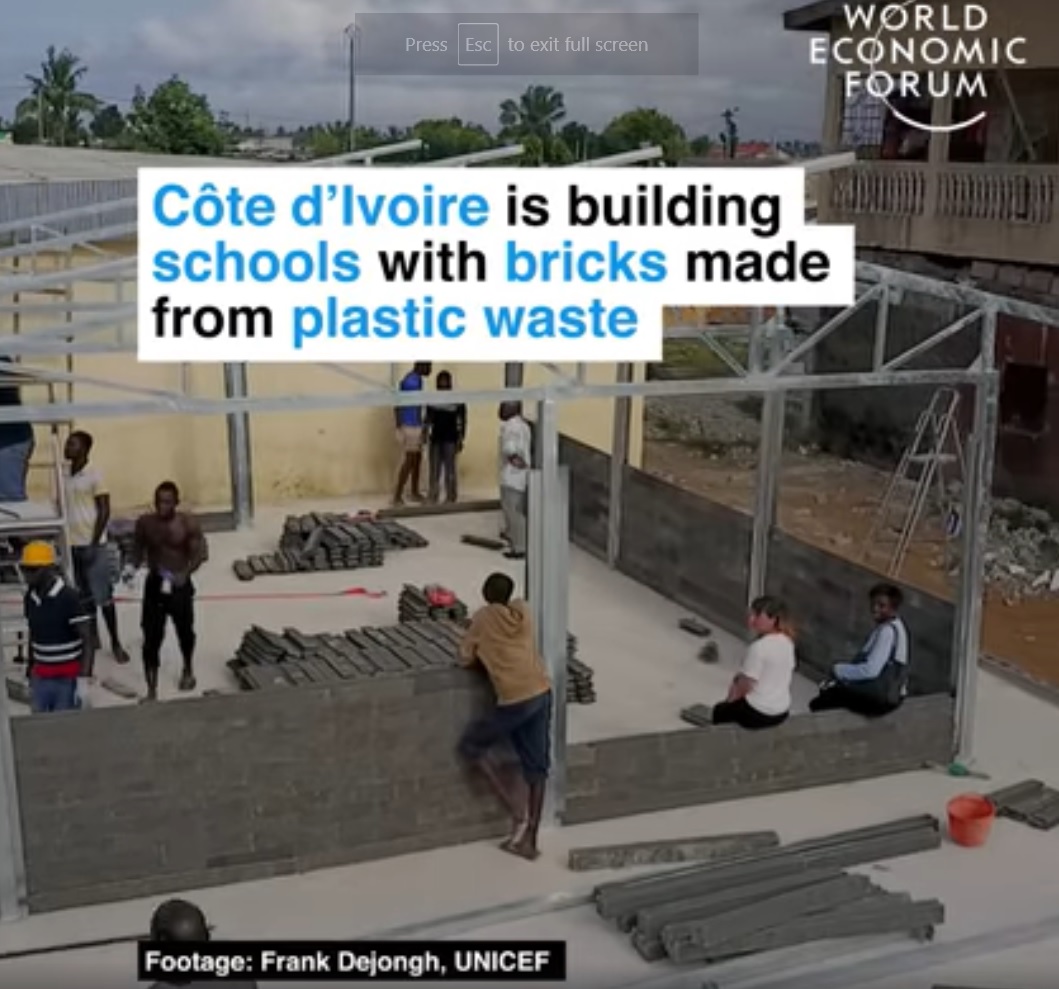Côte d'Ivoire: Project of building schools from plastic on agenda at World Economic Forum

- Country:
- Ivory Coast
A factory Abidjan is trying to merge the rising plastic wastes with the requirement of adequate schools for the children in Côte d'Ivoire. The factory in Ivory Coast is the first of its kind in the African continent that intends to create enough bricks from plastic wastes to construct 500 classrooms across the nation by 2021. Currently, it is funded by the United Nations Children's Fund (UNICEF) and a Colombian social enterprise. The project is on the agenda at the World Economic Forum on Africa taking place in South Africa’s Cape Town between September 4 and 6.
Côte d'Ivoire is building schools with bricks made from plastic waste. A special factory takes plastic trash from dumps in the city of Abidjan. Those plastic wastes are melted and poured into moulds to produce waterproof, fire-resistant bricks, which are 40 percent cheaper, 20 percent lighter and last longer than conventional alternatives. Most existing schools are built from mud-brick, which erode in the sun and rain. The engineers and architects are assembling with novel ways to make right use of plastic wastes ending up in landfills and oceans every year.
The factory will eventually recycle 9,600 tonnes of waste plastic a year to tackle the 100,000 tonnes of plastic trash produced every year in Abidjan (only 5 percent of which is currently recycled). These bricks will build 500 classrooms over the next 2 years, helping over 25,000 children get education, and providing jobs for women living in poverty. The cost estimated USD 14,500 to build each plastic-brick classroom.
Côte d'Ivoire requires 15,000 more classrooms to get all its children learning. Many areas have no schools or the classrooms are already overcrowded with over 100 students. Challenges and opportunities like these are on the agenda at the World Economic Forum on Africa.
"By turning plastic pollution into an opportunity, we want to help lift women out of poverty and leave a better world for children," said Isabel Cristina Gamez, CEO of Conceptos Plasticos, the plastic recycling company building the factory.










